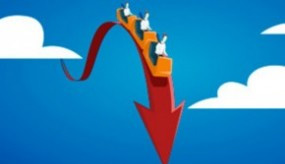The aftermath of the fall in strength of the South African Rand is grim in many respects. Many businesses will have to implement measures to ensure that they survive the struggles that will ensue. This may have serious effects on employment, production and the competitive edge of various businesses.
The first and most obvious effect is the buying power of the rand. The rand has depreciated, meaning that businesses that trade internationally make less of a meaningful profit margin, though there may be an increase in turnover per product/service retailed.
Furthermore, www.biznews.com asserts that the interest rates will be raised by the South African Reserve Bank, and to date we have observed such increases: ‘Such an increase will only serve to further worsen the condition of the South African entrepreneur who has already been hit by the slump of the rand.’
Businesses must try to capitalise on the possibility of making more sales to offset the lower profit margin in order to still break-even or hopefully surpass estimated sales. Their international customers will be more inclined to purchase more product/services because it will be cheaper for them. Steven Panos, Head of Treasury at Mercantile Bank, says to www.biznews.com: ‘On the brighter side, the weakening rand should bolster the tourism sector and undo some of the decline reportedly caused by the widely publicised visa legislation.’
With interest rates increasing, getting credit also becomes more difficult. Therefore, businesses will try to find other means of securing funds for projects and/or to sustain operations. Unfortunately for staff, the first option for many businesses is to cut the labour force in order to sustain themselves. This reduces salary costs which can be redirected to other needy areas.
Jon Foster-Pedley, dean of Henley Business School Africa, does not agree though. He thinks that South Africa already has less of a competitive advantage because of a lack in skilled labour. Therefore, ‘… reducing staff will negatively affect business. Rather, the business should invest in its staff. Companies taking an interest in and sponsoring the higher education aspirations of their employees sends a message that they are valuable to the organisation.’
In addition, maintaining the same staff quotient may prove to be worthwhile if the business is to increase profits by increasing sales. They will need the staff to meet increasing output and other demands including service levels.
In essence, despite the desolate picture businesses envision, the rand’s lesser buying power can be mitigated by increasing production or providing better service. With a suitable staff complement this may be possible. The key is thus not to cut back, but to push forward harder and faster, in order to function within a business model that is essentially resistant to exchange rate volatility and other economic variants.
Proudly brought to you the National Small Business Chamber (NSBC).





